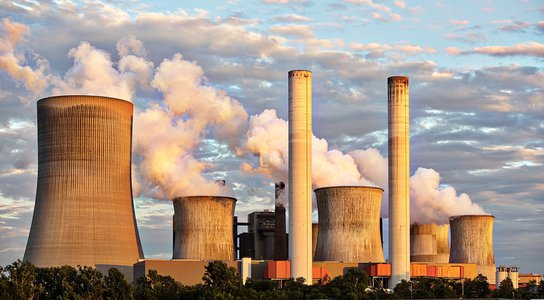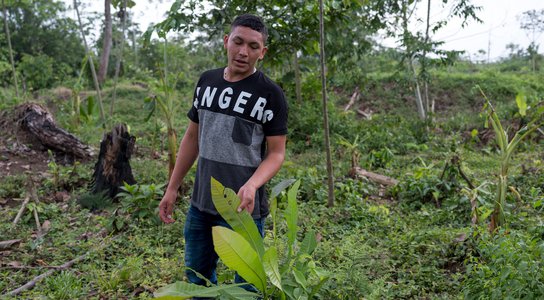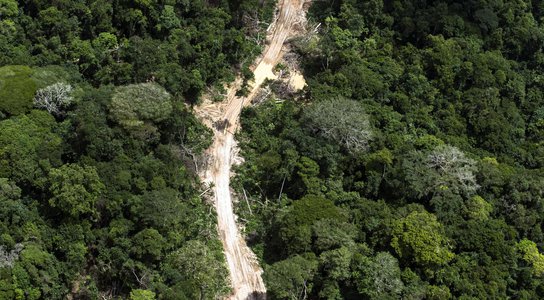The world’s governments are assembling to meet in the city of Katowice in Poland for ‘COP24’ – the 24th ‘Conference Of the Parties’ held under the UN Framework Convention on Climate Change Conference. Even the name of the conference is exasperating - the fact that we are up to conference no.24 and we are not on course to stop catastrophic climate breakdown yet is devastating.
But as American writer Rebecca Solnit puts it, “your enemies would love us to believe that our opponents would love you to believe that it’s hopeless, that you have no power, that there’s no reason to act, that you can’t win.” Every act we take brings the birth of a green, safe, and just world a little closer. The climate fight is not hopeless. I am constantly inspired by the millions of people fighting in every corner of the globe for climate justice – and there are more of us joining the fight all the time.
Here are just five moves governments, businesses and people can make across the globe to help the world meet climate targets:
1. Don’t lift the moratorium on industrial
logging in the Democratic Republic of Congo
Expanding industrial logging in DRC’s rainforest could generate 35 million tonnes of extra CO2 emissions per year – not only stopping us reaching our climate targets, but also accelerating climate change.
Yet, despite this fact, Norway and France are planning to fund an US$18 million programme, which includes backing the expansion of industrial logging in DRC and support to Norsudtimber – the biggest single owner of logging concessions in the DRC, and which our recent report found, is operating illegally on 90% of its sites.
This directly contradicts both countries’
climate and forest protection goals – and will push back our efforts to meet
our climate targets.
2. Protect those on the front line of Environmental Defence.
Land and Environmental defenders
are the frontline of environmental defence, standing up to – sometimes at the
expense of their own lives – widespread environmental destruction. Our Annual
Report on attacks and killings of land and environmental defenders has again
showed a tragic rise, with at least 207 defenders killed over the last year.
Agribusiness is now the most dominant driver of these attacks, with Latin
America still the region with most killings. Intimidation and attacks against
defenders are being seen more and more across the globe – in
the last few months alone, we have seen the first sentence of
“public nuisance” to jail environmental activists in the UK since 1932, after activists
peacefully protested against the first major commercial fracking site in the
UK.
Businesses and governments must make real efforts to change this story –
tackling the root causes of attacks and making sure they support land and
environmental defenders, so that they are able to safely protest against
the destruction which has caused us to miss our climate targets.
3.
Stop
European investors bankrolling projects that lead to widespread environmental
destruction and human rights abuses
Revelations that European’s money – and EU-based investors – play a key
role in funding projects linked to human rights abuses, land grabs and
large-scale environmental destruction, are unfortunately far too commonplace.
Our briefing, Indecent Exposure, highlighted the devastating impact of harms
caused by predatory natural resource projects on communities around the world
and the role that some EU-based investors have played in supporting them.
This investment into projects like oil exploration in Africa’s oldest national
park, a mining project in India which sparked violent protests and
deforestation in Asia and Africa must stop if we are to meet our climate
targets. Our blog also highlighted how the debate around responsible investing
around the collapse of Wonga should bring this issue to the surface.
4. Urge China to introduce timber regulations
As China continues to import huge volumes of timber from both Papua New
Guinea and the Solomon Islands, its continued failure to regulate against
illegally produced wood is putting its own reputation at risk. Our reports ‘A
Major Liability’ and ‘Paradise Lost’ highlighted how this huge
volume of illegal timber has the potential to damage its reputation and major
trade relationships as buyers in the U.S. and EU, which ban illegal timber
imports, take action to protect themselves.
Not only is this a huge business problem - but timber regulations are in place
to stop tropical forests, and endangered and vulnerable species of trees from
being logged, because of their important role as a carbon sink. The more of
these trees we lose, the more likely we are to miss our climate targets going
forward. Regulation on these is key.
5. Don’t fund fossil fuels
The world’s financial institutions enable the climate crisis by providing funding for fossil fuel extraction – by far the largest source of greenhouse gas emissions.
Earlier this year, Standard Chartered announced a coal policy review that sounded like it was going to end up like HSBC’s coal policy – a policy full of holes that still allows the bank to fund coal in Vietnam, Indonesia and Bangladesh. Since 2010, Standard Chartered have funded coal plants to the tune of $1 billion USD.
Our climate team worked hard on this – releasing a report on Standard Chartered’s coal policy which was covered in The Times and FT. We worked as part of a global coalition to persuade Standard Chartered to back out of financing for coal plants. From London to Singapore, campaigners and indigenous groups protested outside Standard Chartered’s buildings. We were in front of their HQ at the crack of dawn handing leaflets to hundreds of their sleepy, bemused staff members. We raised the issue with a number of cross-party MPs who then felt strongly enough to wrote a joint letter to the bank. We funded a full-page ad in the Financial Times against their coal support plans, and we engaged with the bank’s management directly. All of this and more had an impact – Standard Chartered changed its policy and agreed it would no longer provide project finance for coal-fired power plants.
This is a victory, and it puts pressure on other banks like HSBC to rule out coal financing. But it is only a step along the road. Between 2015 and 2017 alone, 36 global banks provided a staggering $345 billion USD for fossil fuel projects and companies. Global Witness and 134 other organisations worldwide are signatories to Banktrack’s ‘Fossil Banks, No Thanks’ campaign, which seeks to end fossil fuel projects worldwide. Banks claim they support the Paris Agreement, but they can only do this by getting out of fossil fuel financing.
Stopping catastrophic climate breakdown requires ambitious change in every area of our society. As Norway’s Environment Minister, Ola Elvestuen puts it, “we are moving way too slowly. We have to do more of everything, faster. We need to deliver on policies at every level. Governments normally move slowly but we don’t have the time.”
It's up to the world’s people to force our governments to do the right thing.


